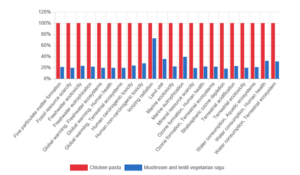Faculty Spotlight: Dr. Michael Holly

Over the past 20 years, life cycle assessment has grown from an academic exercise to an accepted decision-making tool for sustainable management. LCA is used by large companies and entire industries...to develop sustainable products and to quantify emissions and natural resource use to stakeholders and consumers...lifecycle inventories include thousands of calculations and require LCA software to complete. (MSMGT 785, Unit 3 Introduction)What do students do in this activity and take away? After going through a tutorial to learn about the software they will be using, students use “openLCA (a free life cycle assessment tool) to quantify the environmental impact of two defined recipes and one recipe of their choosing. Students then write a report discussing the environmental impacts of the recipes and assumptions used for analysis,” Dr. Holly explains. Student feedback on the activity has been positive. They see it as relevant to their career paths and appreciate the knowledge and experience they gain using a “hands-on tool they use in industry.” What advice would Dr. Holly have for other faculty who may want to try a similar activity in their courses? Using outside software in a course can sometimes be cumbersome or present a financial burden to students. In this activity, however, students do not need to install any software on their computers. Instead, they access it remotely through the Virtual Lab, a tool that UW Extended Campus’s IT team set up for this course. According to Dr. Holly, the “Virtual Lab can reduce some of the risk with incorporating software into a course.” Dr. Holly’s activity is a great example of preparing students in the classroom to work in their field. The activity gives students both industry-specific knowledge and hands-on experience. It’s also well aligned with the goals of the MSMGT program itself, which is to prepare students for a variety of careers focused on the “three Ps”: people, planet, and prosperity.
Now, it’s your turn to participate! Any guess as to which recipe is better for our planet: the chicken pasta or the vegetarian mushroom and lentil ragu?
